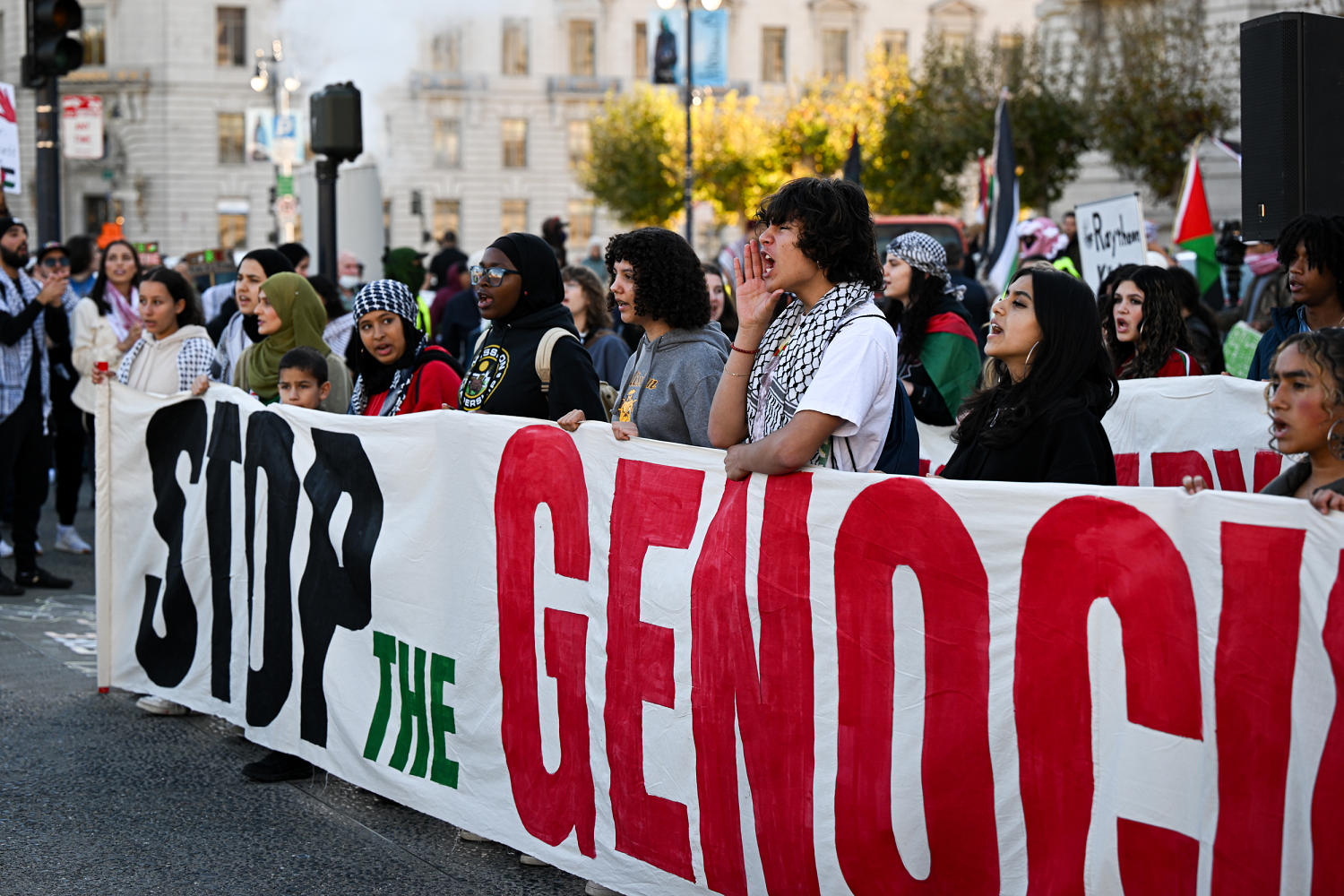Black and Latino voters are pursuing candidates who want a permanent ceasefire

The momentum for support of a cease-fire reflects a broader anti-war sentiment that has been spreading across the country at a time of deepening political divides.
Unlike wars of the past, the conflict in Gaza is livestreamed across social media in real time, creating a sense of urgency not experienced by previous generations. Voters, especially young people, question engaging in conflicts abroad while the U.S. faces its own problems, such as housing affordability, student debt and climate change.
“A lot of our community was seeing the brutality of it on their phones,” said Daisy Lomeli, a City Council member in Cudahy, a small majority-Latino suburb of Los Angeles.
“Our people have been suffering in our own communities for the same reason — colonization,” she added, referring to the European conquests of Mexico and other Latin American countries.
When she was mayor of Cudahy last year, Lomeli, a former schoolteacher and a first-generation American whose family immigrated from Mexico, introduced a resolution calling for an immediate cease-fire in Gaza and accusing the Israeli government of “engaging in collective punishment” against the Palestinian people.
The resolution passed on a 3-1 vote in November. It was inspired by a similar resolution approved by the city of Richmond in the San Francisco Bay Area. That one, the first in California, was proposed by Mayor Eduardo Martinez.
Martinez said his was just one of five Latino families in the small Texas town where he was raised. He was often bullied and harassed by white classmates until he fought back, he said. When he did, he said, he would be sent to the principal’s office, not his tormentors.
“You can use the analogy for Palestinians,” he said, referring to decades of fighting over the territory of Gaza. “You can only take so much before you fight back.”
Lomeli said constituents reached out to her about Cudahy’s taking a similar stand after they saw images of children and their mothers suffering in Gaza and believed Israel was going too far in defending itself against Hamas.
She said the images reminded her of mothers and children drowning as they tried to cross the Rio Grande into the U.S.
“That’s where it hits the hardest — I could never imagine seeing the body of my dead baby,” Lomeli said.
Another Cudahy City Council member, Elizabeth Alcantar, said she voted for the resolution because she had Palestinian classmates in high school and college and felt compelled to stand up for them.
“I have been called antisemitic,” she said. “Our resolution does not speak negatively of our Jewish community at all. We just want justice for all, including Jewish people.”
The bridge between Latinos and Muslims dates back centuries to when Spain was under Islamic rule. Since then, the cultures have grown sometimes in tandem, with certain words in Spanish deriving from the Arabic language and cuisine, like “tacos arabes,” emerging from the two cultures.
A 2020 Pew Research survey of U.S. Jewish adults published in 2021 found that 4% identified as Hispanic and 1% as Black. Eight percent of Muslims in the U.S. identify as Latino, and 20% identify as Black, according to the Pew Research Center.
Rida Hamida, a co-founder of the Latino & Muslim Unity group in Los Angeles, said she grew up steeped in both traditions. Her family is from Gaza, but she was raised in Southern California, where she often snacked on street tacos after she attended services at her local mosque. In 2017, she decided to bring her bicultural experience to the masses.
The result was a popular event called Tacos in Every Mosque, which aimed to unite the two communities. It grew from a few hundred people into more than 1,000 attendees, she said. After the war between Israel and Hamas broke out, Hamida rebranded the pop-up as Tacos for Gaza.
“Food is part of the resistance,” she said. “We need to use food to promote social justice, because that’s how we nourish communities.”
Hamida, whose teenage relative was recently killed in the West Bank, is helping the Southern California cities of Montebello, Bell Gardens and Santa Ana draft new resolutions calling for a cease-fire.
“Members of Congress are starting to pay attention to what their constituents are saying,” she said. “It’s a temperature check for how the community feels.”
Read More: Black and Latino voters are pursuing candidates who want a permanent ceasefire

